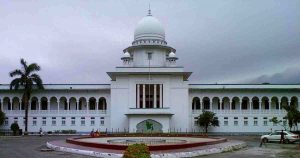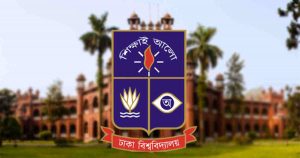Masum Billah
The results of Secondary School Certificate examination came out with the message of significantly high pass rates and higher grades. And this has been a common picture for the last six years which definitely make us elated as it shows that we are rightly keeping pace with the global jump. Is it the case actually if we look into the matter seriously? As I belong to education department, each time when the results of any public examination comes out I become concerned about it and try to give my opinion. But who cares?Undoubtedly it makes us happy to see the increasing trend of our results. In 2007, the SSC pass rate was 58.36percent, the percentage rose to 91.34 this year. A total of 142,276 students got GPA5 this year, compared to 25,732 in 2007. On the other hand, pass rates in national exams used to stand below 50 percent about two decades ago in 1990, the SSC pass rate was only 22.82 percent in the humanities group, while it was 43.63percent in the science group, according to the Bangladesh Bureau of Education Information and Statistics. When we have increased the rate successfully, time has come to think very seriously about the quality as well. We all must think about it . Does the present trend tell us that the quality of education has improved? If not we must find out the causes without being self-complacent.
Some have claimed that the old philosophy of not giving full marks to examinees has changed in recent times which contributed to increasing the pass rate. Well, before the introduction of grading system if a student obtained just a first division, the society considered him/her to be a good student without any doubt. Those who obtained star marks were considered excellent students. Today if any student obtains GPA-5 nobody considers it a leak-proof result. If he needs to get admitted anywhere, he/she is to face test again not only because of limited seats but also to assess his/her real position. So, what’s the credit of just awarding full marks or high marks? Does this evaluation actually give real credibility?
A total 77,551 boys and 64,725 girls—achieved Grade Point Average-5 (GPA-5) which broke all previous records in the grading system. Last year, 91,226 students got GPA-5. All students of 6,210 educational institutions came out successful, making an all-pass record. However, no student passed from 24 educational institutions this year. From eight general education boards, a total of 1,087,870 examinees took part in the SSC examinations. Of them, 1,008,174 examinees came out successful with 122,313 GPA-5. The authorities claim that because of the introduction of creative system students have done fair and crossed all the previous records. Creative system was introduced in 2009 and the education boards started preparing questions reflecting creativity since 2010. After five years of its introduction, teachers could not earn the ability to develop questions on this new system. Academic Supervision Report of the Director of Secondary and Higher Education found in September 2013 that only 55.33 institutions could prepare questions on this new system. 26.10 percent schools could do it partially. Again DSHE in February 2014 conducted another survey and found that 38 schools could not prepare questions by themselves. Causes were identified as teachers’ inability and lack of training. The Ministry of Education says that they have given training in Creative Question to five lakh teachers. But the fact is, most of these teachers could not master the ideas of creative questions which appeared in the dailies many a time. The report also says that many teachers are not only unable to prepare questions, they are not teaching the students following creative system. Under these circumstances, the Ministry of Education has decided to cancel the MPO of those institutions which failed to develop questions of their own following the creative system. This report was published in a daily just one week before publication of the SSC examination results. So, it sounds very contradictory when the authorities claim that results have become so good because of creative system as students have mastered the art of this new system well.
The authorities have another claim that the students have done much better this year in Chemistry, Physics and Mathematics which contributed a lot to increasing the pass rate. We know the teachers of these subjects are rare in rural schools and the rural schools far outnumber those of urban areas. And with possible exceptions most of these teachers cannot make the concept clear of these subjects to the students .Then, how does this situation help to raise the pass rates in these subjects remains a big question.
In English more than 99 percent students have passed. It has been a tough subject for the rural students who constitute the majority of the total number of examinees. English is taught on the basis of four language skills such as listening, speaking, reading and writing. The global research shows that humans communicate 40 percent through listening, 35 percent speaking, 16 percent reading and only 9 percent through writing. We teach English to our learners avoiding and ignoring listening and speaking skills, It means that we don’t touch (40+35) =75 percent skills, we don’t evaluate these two significant skills. We deal with only 25 percent (16 percent reading and 9 percent writing) skills and give huge number of students GPA-5 certifying that they have done excellent in English. The real picture proves the opposite. Our students with rare exceptions cannot understand listening English, cannot speak English even if they are asked to describe themselves. What about reading skills? If a passage is set from outside the textbook we could see how many of them could pass. Just a handful of passages from the textbook are set in the examinations very commonly in any of the boards. They just practice those passages taking help from the guide books and do well. In the same way, they cannot write anything of their own except some students of some institutions. But we don’t hesitate to award them a weighty certificate. The matter seems to be funny.
The ministry took a good initiative. Under this initiative they identified the low performing institutions and selected eight thousand of those to give especial coaching to the students. Obviously, the teachers could not make the students’ concept clear within a very short period which they inherited from primary schools and bore it from class six up to SSC level. However, there was an unwritten pressure on those teachers to make them pass as the teachers got remuneration from the ministry for conducting special classes. The examiners were asked from the board authorities to check the examination scripts very liberally. The worst thing is, the questions of all the examinations leaked out which could not draw the attention of the proper authorities for some unknown reasons. The perpetrators used facebook to spread the message all over the country. Eminent educationist Dr. Jafar Iqbal wrote two articles namely ‘Can anyone of you tell me?’and ‘Is leaking questions not a crime? He reflected in these writings that the nation did not consider the fact of question leak as a serious matter but it has been killing the vitality of our nation. It is interesting enough that nobody paid heed to it which gives a signal that we are passing through a bad time. When students get the questions in hand before the exams and do well in the exams, can we take the credit?
Masum Billah, programme manager, BRAC Education Programme and vice-president: Bangladesh English Language Teachers Association (BELTA) Email: masumbillah65@gmail.com




